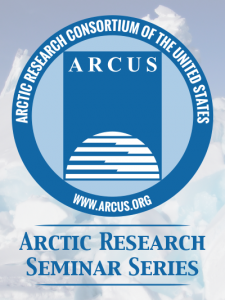The 7th symposium will address this year political aspects of life in the Arctic as well as the Arctic life as an object of politics, even in the academia. Life in the Arctic has become politicized in many ways due to the effects and challenges posed by climate change, industrialization, urbanization and globalization to local communities and inhabitants. Across the region, conflicts over land use and natural resources accompanied by insecurity and uncertainty about the future are part of everyday life in the Arctic. Such conflicts are political, and occur without respect to the borders of states or boundaries of politically constructed regions. In contrast to much publicized and debated threats of an open, international, direct and even military conflict over Arctic resources, these often small-scale, local conflicts relate to unequal social arrangements, benefit sharing and risk distribution in connection to mega-projects and infrastructural development around the region, and they could also be called “structural violence”. Living in the Arctic, for both humans and non-humans, is nowadays a political question of coping with, adapting to and transforming changing conditions and circumstances, but also a starting point and object of political interventions of different scales, institutional arrangements and by a broad range of political actors. Papers and presentations covering different aspects of Arctic life as a political phenomenon are welcome.
Keynote speakers:
Will be confirmed in the connection of the second call for papers. The second call will be published in early June, 2017.
Deadline for proposals:
Please send your abstract (max. 250-words) with your name, title, affiliation and contact information before July 31, 2017 by email to Monica Tennberg (monica.tennberg [at] ulapland.fi).
Programme:
The programme will include keynote talks, presentations by the participants and discussions on the basis of presentations. A symposium dinner will be organized.
The accepted papers and programme will be announced by August 15, 2017.
Deadline for registration:
If you prefer to participate to the symposium without presenting a paper, please register your participation before September 15, 2017 by email to Susanna Pirnes (susanna.pirnes [at] ulapland.fi)
Travel and accommodation:
The event will be held in Loma-Vietonen, 65 kilometres northwest from Rovaniemi. The organizers will arrange transportation for participants from Rovaniemi to Loma-Vietonen and back. There is no fee for participation, but participants (except presenters) will cover their own travel and accommodation costs. Information about travel and accommodation arrangements will be sent to the participants. Let us know if you have any wishes about the diet.
More information:
Symposium organizer, research professor Monica Tennberg, research professor, Northern political economy/Sustainable development research group, Arctic Centre, University of Lapland (monica.tennberg [at] ulapland.fi) and the symposium organizing team Tanja Joona (tanja.joona [at] ulapland.fi), Susanna Pirnes (susanna.pirnes [at] ulapland.fi), and Hanna Lempinen (hanna.lempinen [at] ulapland.fi)


